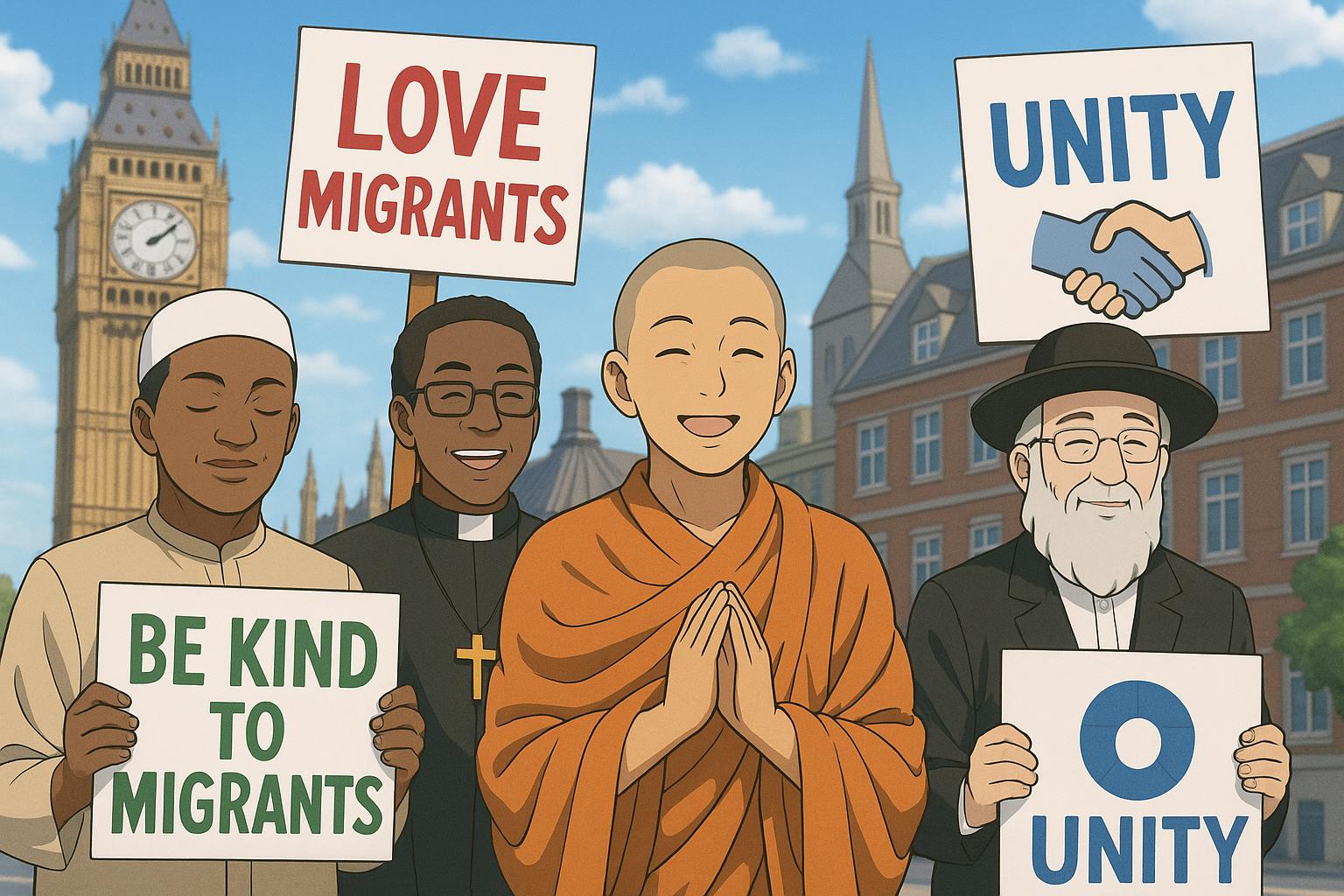More than a dozen senior leaders from various faith communities have urged Prime Minister Keir Starmer to adopt a more compassionate approach towards migrants, following his controversial “island of strangers” speech. This address came before the release of the government’s immigration white paper, which is emblematic of a failure to confront the realities faced by vulnerable communities and has faced substantial criticism from various migrant rights organisations and civil society groups.
The letter, coordinated by the UK Jewish refugee charity HIAS+JCORE, has been signed by over 25 notable faith leaders, including 14 senior Anglican bishops, representatives from the Baptist Union of Great Britain, the Methodist Church, the Scottish Episcopal Church, and the United Reformed Church. Prominent signatories—such as the Bishops of Winchester, Southwark, London, Leicester, and Leeds—highlight a serious disconnect between the Prime Minister's rhetoric and the urgent need for more sensible policies amidst rising public anxiety.
Starmer’s remarks, particularly those invoking an “island of strangers,” echo the infamous “rivers of blood” speech by Enoch Powell, suggesting a troubling trend in how immigration is being framed by the Labour government. Critics argue that such language only serves to inflame racial and cultural tensions, compelling the faith leaders to call for a narrative that bolsters unity rather than division. Their letter underscores a pressing need for the government to recalibrate its messaging around immigration, stressing that framing the situation as unfair only fuels divisive politics and aggravates the concerns of ordinary citizens.
The signatories advocate for a recognition of the contributions migrants make to UK society, asserting: “People have come to the UK under the rules set by successive governments, paying fees and surcharges, to work, contribute, and pay taxes.” Such a viewpoint challenges the current government’s approach, which appears detached from the realities faced by average Britons who seek security and stability in their communities.
Furthermore, the faith leaders highlight the urgent need for overhauls within the UK’s asylum framework. They call for policies that not only address the immediate needs of hosting communities but also consider the grave realities faced by those fleeing conflict and persecution. “Only by doing so can we actually fix the systemic problems faced by those within our current asylum system and humanitarian protection schemes,” they stress, indicating a critical juncture for effective governance.
The inflammatory rhetoric surrounding immigration in the UK is contributing to a pervading climate of animosity, further exacerbated by the failures of both Conservative and Labour politicians to foster inclusive dialogue. The rising tide of far-right extremism, evidenced by riots across England, highlights an urgent need for a change in government stance—something that could align with a more resolute political messaging that seeks to address grievances rather than amplify them.
In parallel, there is an increasing call among UK faith leaders for decisive action to create long-term, compassionate strategies for the refugee crisis and human trafficking. The Archbishops of Canterbury and York have publicly underscored the necessity of ensuring protections for those seeking sanctuary, while advocating for fair and resolute asylum processes. This urgent call aligns with a broader need for a leadership that prioritises empathy over pandering to fearmongering tactics.
As the immigration debate unfolds, faith leaders are vocal in standing up for the voiceless, including those who have integrated successfully into the tapestry of British life. The prevailing sentiment is clear: rather than being portrayed as a threat, the invaluable contributions migrants make to the UK's diversity and strength ought to be celebrated, not demonised.
The Prime Minister’s office has been contacted for comment regarding this increasingly significant interfaith appeal for a reassessment of immigration rhetoric and policy, marking a pivotal moment in how migration issues are communicated and understood in the British public sphere.
Source: Noah Wire Services
